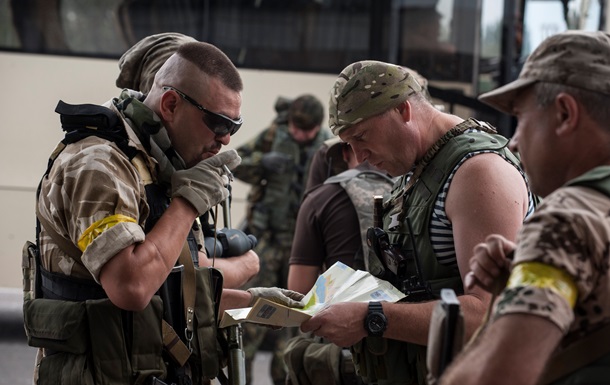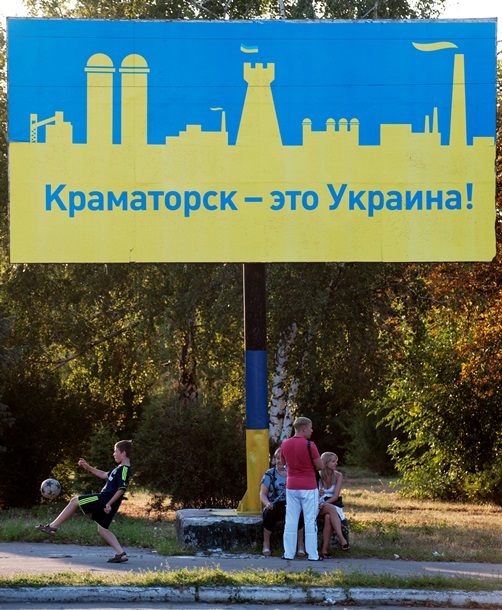Review of InoSMI: Is there a peaceful way out of the Ukrainian crisis and why early to rejoice at the victories of the military in the Donbass

Foreign publications continue to monitor the situation in Ukraine and its impact on the alignment of forces in the world arena
Why does Putin prepare "humanitarian aid"? - The Washington Post
The publication believes that it is still unclear whether an agreement on providing humanitarian aid to Ukraine under the auspices of the Red Cross is sufficient to deter Russia from a military invasion of Ukraine.
The motives for another escalation and continued attempts at interference by Russia, according to journalists, are quite understandable.
In areas that hold the Kremlin's forces, there is not a "humanitarian crisis", he claims, but a threat that the Ukrainian army, along with militant formations, will win a military victory. The authorities say that Kiev troops surrounded the cities of Donetsk and Lugansk, where the remains of forces supported by Russia are concentrated, and before that they liberated three quarters of the territory under the control of the insurgents.
So Putin faced the threat of failure of his proteges, and this circumstance can not only weaken his grip on Ukraine, but also lead to political problems within Russia, where state propaganda inflates nationalistic passions in connection with the Ukrainian crisis.
Western leaders seem to have agreed with Poroshenko's argument that the purpose of the military operation of the Ukrainian army is not to defeat Russia, but to save Ukraine. If Putin's forces manage to control some part of the territory under their control, the Russian president will be able to interfere indefinitely with stabilization in Ukraine, as he does in other "frozen conflicts", subversive work against Russia's neighbors.
How to find a peaceful way out of the Ukrainian crisis- "The Financial Times"
The former British ambassador to Moscow, Rodrik Braithwaite, believes that for a peaceful resolution of the conflict, one must first think about what all this wants to end.
And we want Ukraine to be at peace with itself and with its neighbors. For the foreseeable future, the question of her membership in NATO can not even be considered. The Crimea will remain Russian. But first you need to achieve a ceasefire. Then it will be necessary to deal with urgent settlement issues. And these are mutually beneficial trade relations between Ukraine and its neighbors, including the EU and Russia; Serious efforts to stabilize its economy; Additional guarantees of the rights of the Russian-speaking population; Perhaps even some limited autonomy while preserving the integrity of the Ukrainian state; And finally, the cessation of foreign interference in Ukrainian affairs.
A difficult problem of neutrality can be resolved by the constitutional provision that Ukraine will remain an unaffiliated state if two-thirds of its population does not vote for changing this status.
The level of support for joining NATO among the Ukrainian population has never even come close to this figure. To implement the changes, we will have to wait for changes in public opinion and, of course, changes in the demographic relationship between those Ukrainians who look at Russia and those who look to the West. Something similar was present in an important agreement that brought peace to Northern Ireland: it was the idea that it would not become part of the Republic of Ireland until most of its population decided so. Russians who are looking for a way out of this situation can agree to such a proposal. For Western hawks this should also be enough.
Negotiations through an intermediary will allow Russians and Ukrainians to conduct a conversation, having a buffer among themselves. The main thing is to translate these efforts into the realm of practical cases before the violence gets out of hand.
Victory in the war in the Donbass is not a reason for the joy of Ukrainians - TheTimes
It's better when bad guys lose than win. But this is not necessarily the reason for joy. The prospect that the Russian-backed uprising in Ukraine will spread north and west of the Crimea, and the likelihood of a full-scale civil war have diminished.
But the end of the most bloody conflict in Europe since the war in the former Yugoslavia (or break in it) is not the best reason for the holiday
To win the war, the Ukrainian authorities concluded two deals with the devil. One - with the oligarchs - the politically powerful tycoons who hated Yanukovych's predatory regime, but do not inspire much confidence when it comes to creating a rule-governed, open society.

The other - with volunteer volunteers. What will happen to them when the fight is over? Marauding gangs of rude, self-confident armed people expecting to be treated as national heroes will undermine the fragile political system of the country rather than strengthen it, journalist Edward Lucas believes.
The restoration of destroyed houses, roads, schools and hospitals, according to the journalist, will be a heavy burden on the empty state treasury, not to mention improving public services sufficiently to arouse loyalty and enthusiasm among the population.
What will the conflict with Russia bring to the EU energy industry? - Slate.fr
The rise in tension between the European Union and Russia against the background of the Ukrainian conflict will certainly affect the energy sector. Moscow can not leave unanswered the economic sanctions that were adopted in late July in Brussels in order to strike Russia's (primarily, financial) interests. The first reaction of Moscow has already been a ban on the import of food from European countries. However, the real Achilles' heel of Europe in the current confrontation is energy. First of all, this refers to the EU's dependence on the supply of Russian hydrocarbons and, in particular, gas.
In addition, time works for Moscow: as reserves are depleted in the North Sea (they are in any case ten times less than Russian ones), Europe will increasingly depend on energy suppliers of other countries led by Russia. Therefore, she needs to consider alternative solutions without delay. Oh, they do exist.
Forming the gas infrastructure to strengthen ties between member countries. Thus, the states most dependent on Russian gas will be able to get the fuel they need through other channels.
"We need to complete the formation of the internal energy market, improve the infrastructure, be more rational in the use of energy resources and better absorb what we have available," insist the European Commission, as if forgetting that the European energy market has long been among its most high-profile Failures.
Be that as it may, specific actions are still necessary. In Brussels, they are already marking "33 infrastructure projects critical for the energy security of the EU". They are among the 250 major trans-European infrastructure programs, for which a budget of 5.85 billion euros has already been allocated for the period 2014-2020.
Thus, in the foreseeable future, Europe can start with more active use of its existing gas storage facilities, which are currently less than half occupied. In addition, it can create new facilities for this and create sufficient gas reserves in the event of crisis situations, as has already been done in the fuel sector.


Comments
When commenting on, remember that the content and tone of your message can hurt the feelings of real people, show respect and tolerance to your interlocutors even if you do not share their opinion, your behavior in the conditions of freedom of expression and anonymity provided by the Internet, changes Not only virtual, but also the real world. All comments are hidden from the index, spam is controlled.